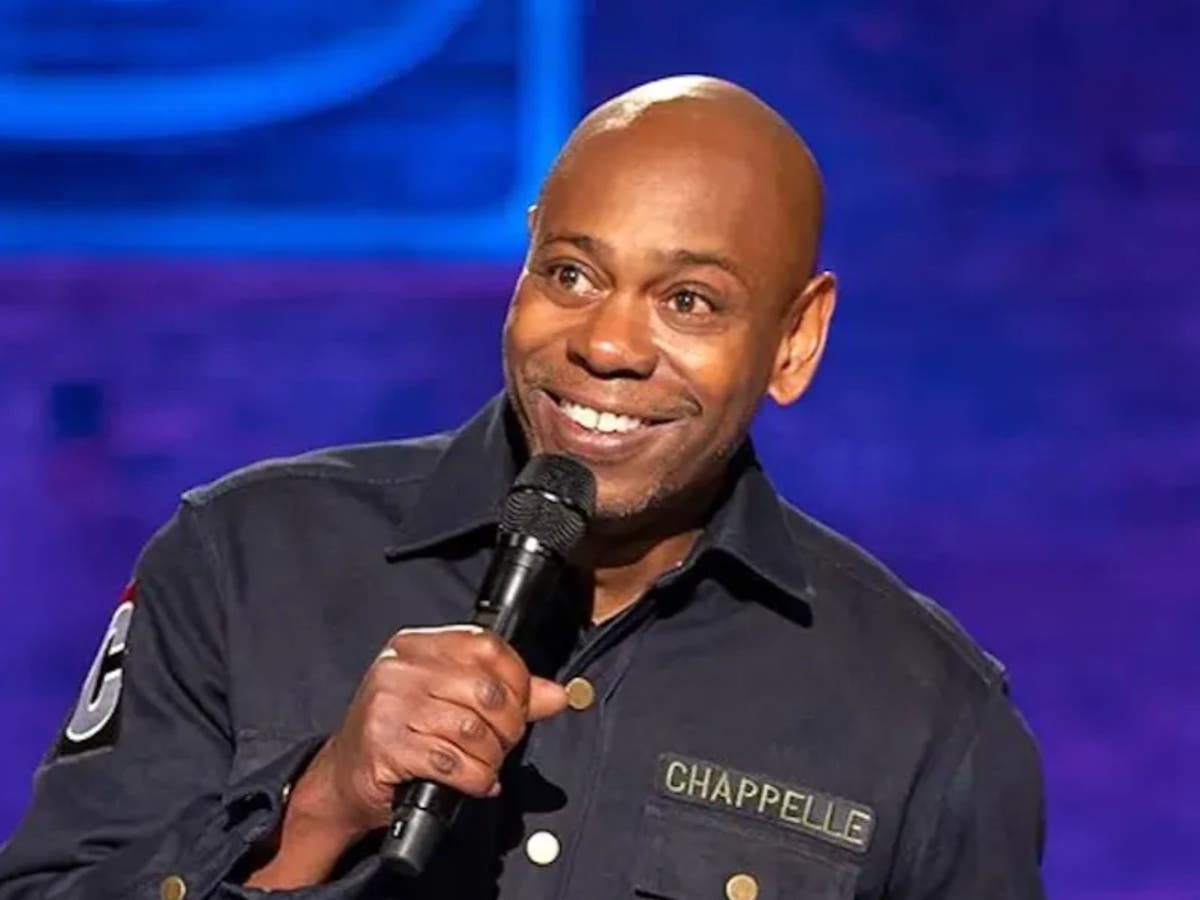Dave Chappelle has released a new Netflix special, The Dreamer, which is full of jokes about the trans community and disabled people.
“I love punching down!” he tells the audience, in a one-hour show that landed on the streaming service today (31 December).
It’s his seventh special for Netflix and comes two years after his last one, the highly controversial release The Closer.
That programme was criticised for its relentless jokes about the trans community, and Chappelle revisits the topic in his new show.
He tells jokes about trans women in prison, and about trans people “pretending” to be somebody they are not.



I dunno, there’s a couple problems there. You can still punch up or punch down while recognizing that everyone’s equal, because we can recognize that status doesn’t have to really do with whether or not someone’s equal. i.e. someone can be lower or higher status, monetarily, socially, while still being of equal worth, in terms of like, their value as a human. So you can still “punch up” or “punch down”, because there’s still problems in society, we don’t live in a kind of totally equal utopia, or what have you, and to not recognize that and say that we do, and then use that as a justification to be able to punch down, you know, that would be bad.
Oftentimes, the reason people find ire with “punching down”, is that it makes fun of people from the perspective of their lack of status and their lack of worth as a human. It’s fine to make fun of disabled people, in general, but it’s not really funny to make fun of someone who’s in a wheelchair, for the fact they’re in a wheelchair, most especially if you’re not in a wheelchair, because that’s punching down. You also see this thing where people who occupy minority positions, like being in a wheelchair, will try to ingratiate themselves to the majority, sometimes with some degree of success, by basically punching themselves in the face socially. “Oh, I’m in a wheelchair, isn’t that so funny guys?”, but unironically, which negatively impacts, in this example, the disabled, especially as it is used as evidence for being like “hey disabled people are okay with it” or “hey this other guy’s okay with it, so if you complain, you’re just lame and don’t have a legitimate grievance”. Now it’s their “choice” to punch themselves, but we can also recognize it’s arising from their need to try and improve their situation, and the extenuating circumstances, and so it’s kind of not that funny in the broader picture, and we also try not to blame them for it on the basis that it’s as a result of their circumstance.
You would probably get better laughs and better comedy out of it anyways, if you tried to point out the kind of existential insanity of being someone in a wheelchair, and moving through the modern world, which has not been crafted for you. People in wheelchairs have difficulty using the restroom, for example, because restrooms aren’t really laid out for them, so you could maybe come at it from the angle of “why do we still have urinals”, or “what the fuck is up with asian squat toilets”, or something to that effect. Maybe make fun of everyone wanting you to cut off your legs, and give you robot legs, when really all you wanted was to have a wheelchair that lets you piss and shit, and like, an elevator that isn’t broken. The reason chapelle’s modern shit isn’t that funny, imo, is because he doesn’t understand the perspective of trans people enough to make effective jokes out of it. Which, to be fair, is pretty hard to do, if you’re not trans. Which is sort of why most comedians don’t try it, the same way most white comedians don’t try to do racial comedy about black people.
That’s not all to overcorrect and say that all his shit in “the closer” was bad, because it wasn’t, and he had a handful of good points, but the problem is going to kind of arise when those good points also come with a handful of pretty bad points and pretty bad jokes. Just like his actual show. If I had to wager a guess, I’d say that a good amount of dave chappelle’s popularity comes from the double tradeoff of it being extremely popular in the 2000’s to kind of be more comfortable with being “edgy” and making fun of black people, on the basis that they’re equal, and “I’m not a racist, so it’s okay” type shit. People laughing at him, rather than with him, but on the basis that we live in a harmonious post-racial society, barring all of the “weird racists”. He even ended up saying as much, as to why he wanted to quit his own show, that he felt people were laughing more at him. The double tradeoff I’m talking about, there, is that he was using the same platform, out the other side of his mouth, to make funny and insightful comedy that pushed the buck. He could attract white people looking to laugh at the minstrel and misogyny, but then turn around and give some good shit on top of it. Even just to portray the reality that black people were still oppressed. Is that tradeoff worth it? It maybe is, if you’re able to give good enough insight to kind of balance the rest out, but if the insight is lacking, if the perspective is lacking, then obviously people are gonna be more likely to get very frustrated with it. That’s all me talking out my ass, though.